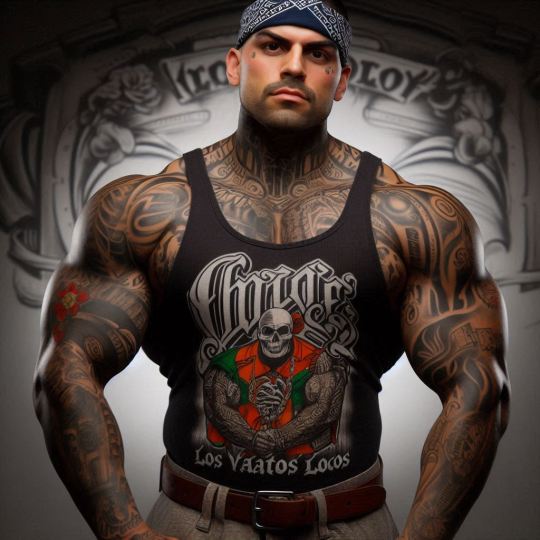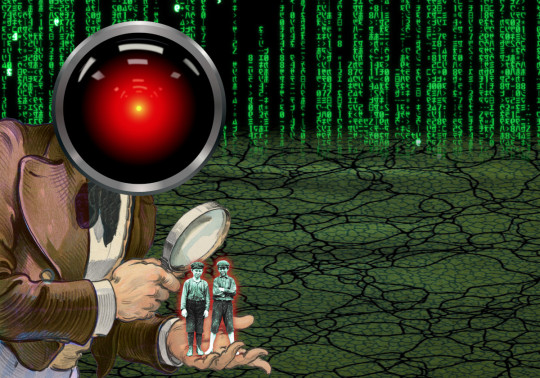#what are the examples of marketing research
Explore tagged Tumblr posts
Text
Best Marketing Research Agency
Why should you hire the best marketing research agency?

Hiring the best marketing research agency can provide numerous benefits for your business.
First, a reputable and experienced agency will have a deep understanding of the industry and the latest research methods, allowing them to provide you with accurate and actionable insights.
Second, they will have a team of experts who will be able to conduct research in a professional and unbiased manner, giving you more confidence in the results.
Third, they will be able to customize their research to meet your specific needs and goals, which will ensure that you are getting the most value out of your investment.
Fourth, their wide range of services and capabilities will allow you to get a comprehensive view of your market and competitors, which will help you make better strategic decisions.
Finally, they will have a global reach, which will enable you to understand your target market across different countries, cultures, and languages.
In short, Hiring the best marketing research agency can give you a competitive edge by providing you with the insights you need to make informed decisions and drive your business forward.
#softnmart#softnmart limited#best marketing research agency#marketing agency#social media marketing#best marketing research firms#best marketing research companies#best marketing recruiters#best marketing research tools#best marketing recruiting firms#best marketing research#best marketing agency uk#what is market research agencies#best b2b market research companies#what is b2b market research#best market research firms in the world#top marketing research companies in chennai#top marketing research companies#what are the examples of marketing research#what are specialist market research agencies#effective marketing research#best market research agency#good marketing research topics#top marketing research companies in hyderabad#top marketing research agency in india#is marketing research a good career#best marketing agency name#best marketing recruiters nyc#best marketing research books#best marketing strategy for real estate agents
0 notes
Text
.
#I’m stressing myself out about pricing stuff#for example I just finished painting a skyphos that I’ve sunk probably north of 8 hours into in making sketching and painting#and when I say sketching I mean on the pot I’m not even considering research or sketchbook sketching#so yeah probably about 9 hours worth of work so far if I’m being more realistic#and at the end of the day I know I’m not the only potter out there making expensive stuff that leans more towards fine art than like#mass production but I’m in rural North Carolina and I guess I’m just worried about finding my market#I’ve got a little thing I’m doing with a few friends next weekend but my hopes are pretty low for that#anyways this just convinced me I need to send things to shows#tumblr tag journaling works#anyways does anyone want a cup for 200 dollars#what if I told you it has the Minotaur on it#no chiton
1 note
·
View note
Note
As someone with relevant university degrees and having researched hair loss treatments while not affecting other effects of testosterone myself:
(i will give a bit extra explanation in case it helps someone)
What is currently known to work against androgen based hairloss is either
estrogen or androgen blockers such as anti-androgen birth control (obviously not a desired option here and won't get more detail for this request)
minoxidil (stimulates blood flow to hair follicles which furthers hair growth)
finasteride (a DHT blocker. DHT is aka dihydro testosterone, and is the form of testosterone that's responsible for body hair growth, bottom growth, androgen based hair loss, and potentially more greasy skin)
You can take either of those internally through pills, or externally.
External can be either a trans dermal therapy (such as t or e gel) that gets apllied on the skin but absorbed through it and into the blood stream, where it works systemically (aka in the whole body). Or a topical therapy, that only works locally on the area it gets applied to (cortisol cremes are a common example).
Minoxidil can be taken as a pill for systemic effects (often side effects of low blood pressure and is not common) or as a spray or foam for topical effects (con: toxic to cats and dogs if they ingest it).
Finasteride can be taken as a pill for systemic effects (common (since it's a treatment for prostate issues), blocks the effects of DHT in the whole body) or as a spray or foam for topical effects.
How a medication is formulated can have a big influence on whether something just works locally or gets absorbed through the skin. This doesn't work 100%. It's impossible to construct something that gets absorbed into the skin and doesn't get absorbed into the blood at all or not work a little bit on the surrounding areas, so there is always some trace amounts that have systemic effects.
However, it's also quite difficult to get a big enough dose for a systemic effect from application on the skin. And hair follicles, where this needs to work, are extremely easy to get to from the outside.
So what one can do to counteract androgen based hairloss without compromising effects on other areas much is finasteride and minoxidil as a spray. (You can even take both as well).
Side note: rosemary oil is also often recommended. This is because it contains a DHT blocker as well. However it's difficult to get the dosage right, and can often be too weak to be effective or, if undiluted, have strong irritating effects. That's why i don't recommend it personally, because i lack the expertise to recommend it responsibly.
The most likely side effect on transition from using finasteride on the head i can imagine is somewhat slower beard and eye brow growth. I can't attest to that from first hand experience but it seems likely to me.
Other prevention of t effects to a strong degree from just topical finasteride is something i can't see happening. It's not impossible, since topical finasteride is relatively new to the market, but it seems unlikely to me to have that strong an effect.
sorry if this has been asked before but i find your answers to asks abt medical transition really helpful- baldness runs heavily in my family and it is one of the only things left making me hesitant about testosterone. the problem for me is every hair loss prevention cream/medicine my doctor has suggested *also* prevents all the stuff i REALLY want from T (body hair, bottom growth, etc.)
are you aware of any alternatives that could have the effects be more localized to the top of the head? neither me or my doctor seem to be very knowledgable about this sort of thing unfortunately...
i usually hear finasteride or minoxidil recommended, i believe?
any and all help for anon would be appreciated!
85 notes
·
View notes
Text
That AMA marks the end of Dragon Age.
In my opinion.
I'll start by saying that I have played all 3 of the previous games repeatedly, I've loved the series for 15 years, more than half my life. These games inspired me to become a writer and they've shaped a lot of my tastes and interests in shows and writing -- to say they were formative is kind of an understatement. Don't want to go on and on about how much I loved them, that's not the point here.
I didn't care for Veilguard for pretty much all of the reasons people have already discussed at length on Reddit and Tumblr. The writing is comprehensively bad, the romances are easily the worst Bioware has written by pure virtue of having the most cookie-cutter pacing and shallow characterization I've seen across their games, the lore has been shafted in every direction, and the nuanced storytelling and roleplay I came to expect from the series has been taken out back and shot in the head.
All, apparently, in the name of a "clean slate". It seems to me that, rather than familiarizing himself with the existing lore of the game he took the creative reins on, Epler clearly had a vision for Dragon Age (or perhaps a different IP entirely) in his head that he decided to transplant into the game (and possibly Trick? But they've said so little beyond defending their work that I can hardly theorize what direction they were coming from). That being a sanitized, wildly self-contradicting, morally absolute shitshow focused on distancing itself from the previous games as much as possible. Now, I know it's unrealistic to blame one person entirely, and I don't blame him entirely. Corinne was there. Trick was there.
But if it wasn't already evident from the numerous interviews Epler's given on the game as well as his participation in the Q&A's (while the actual lead writer of the game has been completely absent in not just the marketing, but in most fan-related interaction pre and post-launch outside of BSKY), this AMA seems to have confirmed, more than anything else, that Epler doesn't understand the game nor does he understand its audience. Neither does Corinne Busche, who despite being Game Director for only the last two years of development, has been answering lore questions a) like she has any fucking clue and b) like she thinks Dragon Age is a cozy-gamer IP, meant to appeal to people that want uplifting stories with uncontroversial characters, morally upright heroes, and unquestionably evil villains.
So as of today's AMA, I think I've finally had enough. We're just outright retconning the lore in Reddit AMA's now, I guess. Among other things. I'll provide a few examples, just so we're all on the same page.
This was part of Epler's response to why Solas didn't have his cult following in the game (insert "We Kind of Forgot" meme here):
Solas' experience leading the rebellion against the Evanuris turned him against the idea of being a leader. You see it in the memories - the entire experience of being in charge ate at him and, ultimately, convinced him he needed to do this on his own. And his own motivations were very different from the motivations of those who wanted to follow him - he had no real regard for their lives or their goals. So at some point between Trespasser and DATV, he severed that connection with his 'followers' and went back to being a lone wolf.
The fact that this (the not caring bit) directly contradicts the writing in the actual game is absolutely INSANE to me, moreso than the lack of Solas's spy network (which he apparently carried with him for 10 years only to conveniently drop right before the ritual? Because he clearly had them research Rook?). But in regards to the not caring -- here's a line from Solas's memory of killing Mythal in Veilguard, which. I'll get to Mythal in a minute:
Why should I not tear down the Veil, and bring back immortality to all the elven people? They deserve it!
Which is it? Does Solas care about the people he's saving (the venn diagram of people he's saving vs. the people following him is surely a circle, i.e. elves) or not? Does he even care about the spirits trapped behind the Veil anymore or is it just convenient to abandon them and have him only care about elves, now? What happened to saving The People? What happened to him not identifying as an elf in his conversations with a Dalish Inquisitor? And what the absolute fuck happened to him wanting to bring back the magical marvels (that the ancient elves did in fact achieve) that were greater than anything we see in Thedas today? Here's what Epler has to say about elven magic, now:
I do agree that the elves have had their place in the sun at this point. [...] The thing about the Evanuris is that, ultimately, they were able to take a very specific type of magic and shape it into doing what they wanted. But even their understanding of magic was only skin deep [...] Even the magic that Tevinter wields, the magic of the Southern mages, is different from what the Evanuris used. The magic of the Evanuris is powerful but it's sterile, and it's constrained. So while the Evanuris have made magic work in a way that's more predictable and understandable, it's not the only kind of magic out there, and even then, I'd say they understood it at a very surface level. People were confidently describing how the natural world worked back in the 16th century. Very few of them were right.
First of all, Tevinter has been stated in previous games to have clumsily adapted ancient elven magic for their own, but they did adapt it. To the point where even Solas is surprised that Corypheus achieved effective immortality -- by binding himself to a dragon the same way the Evanuris did. So, cool, more contradicting the lore here. "They understood it at a very surface level" you mean when all of the magic of the Fade wasn't locked behind the Veil? You mean when magic flowed freely through the world? What do you mean, Surface Fucking Level? The entire point of the Dalish elf culture is what they lost; this wasn't the ancient elves thinking the sun revolved around the earth, the Veil was their fucking Library of Alexandria burning. Oh my god. I still cannot believe he said this.
And how have the elves had their day in the sun? I'm sorry, was Arlathan not given to... the Veil Jumpers? Instead of the Dalish? What happened to all the Dalish clans in the south, who had no infrastructure when the world was apparently blighted to hell? I guess they're just gone now! They've had their day! The story of the Dalish and the Evanuris is over (also confirmed in this AMA), and it apparently ends with the final snuff of the candle that is their culture. Congratulations, Chantry, you've won! Only took two genocides and a double blight, but we're done with the Dalish now! We get your mind-numbingly superficial factions instead!
What happened to Mythal, by the way? What happened to "She was betrayed as I was betrayed, as the world was betrayed! Mythal clawed and crawled her way through the ages to me, and I will see her avenged!" What happened to the reckoning that will shake the very heavens? John's answer to this:
People grow and change over time. Mythal's essence - and in particular, the fragment of her spirit that Morrigan carries, that she got from Flemeth - is not the same Mythal who he knew millennia ago. Centuries of living in this world and being around the kinds of people Flemeth found herself around - the Hero of Ferelden, Hawke, the Inquisitor - changed her views, and made her realize her own culpability in turning Solas into the kind of person he is now.
Oh, right, okay. So she was pissed for like a thousand years, got her big speech about the impending "reckoning" out 10 years ago, and then she just chilled out because the last 3 heroes were neat people. What a fucking joke. And yes, here is the confirmation that the Evanuris story is over --
The story of the Evanuris is done - the gods are dead (or imprisoned) and Thedas is in a state of flux and uncertainty. I imagine that whatever happens next is going to be a surprise to everyone, including the people of Thedas."
So I guess Mythal's reckoning is never coming. One of the most fascinating characters in the series, shrouded in mystery for those first 3 games, PROMISING US a blaze of glory, only to fizzle out in this one. Again, and I can't emphasize this enough, for Epler's clean fucking slate. And we've not just tied up her story, but also the Veil and the Blight:
When Solas bound himself (or, depending on your ending, was forcibly bound) to the Veil, it severed the connection that the Blight had to the waking world. The reality is that the Veil has been leaking ever since the Magisters first entered the Black City, and the dreams of the Titans gave it its terrible and awesome power. Now that the Veil is fully repaired, the Blight lacks that motive force, and being so close to the epicenter of that change has stripped the Blight in Minrathous of its vitality. It's calcified now - dead - and Bellara/Neve no longer suffer its effects. If they'd been anywhere else, further from that epicenter, it would've likely been different and they still would be looking for a cure.
So the Veil is permanently fixed now because our half-dead Dread Wolf bound himself to it (a decision I still don't understand) and that somehow fixed every single hole ever poked in it. Fully repaired. No more holes, no more "Veil is thin here" because tons of people died in the same spot, nope, we're washing our hands and leaving it (and the spirits) behind us because we've wrapped up both the series-long Veil storyline and the blight storyline in a big red bow.
And Epler tells us Solas not only bound himself to the Veil but fixed it entirely in one fell swoop, no ritual required, just a little slice to the hand. Again, all in the name of a clean slate, so any future installments or media centered around Thedas can turn away from this story.
Then there's this. What we can expect from future installments, I freaking guess. The aforementioned roleplay getting taken out back and shot:
Q: "What lead you to the decision to step away from active conversations with the companions as in previous Bioware games, where you can initiate them at any moment and ask exhaustive questions?"
John: "For us, because of tech limitations, it became a choice between exhaustive investigate conversations, or letting the companions move more freely around the Lighthouse. With the kind of experience we were going for, one where seeing the team grow around you is paramount, we felt that seeing them interact in common spaces (and in each other's rooms) made more sense."
Literally confirmed that they chose companions moving freely about the cabin over ... interacting with them outside the handful of cutscenes we got. Who in their right mind would think this was a good call in a Dragon Age game? A series that quite literally prides itself on complex character interactions and storytelling? So they could... sit in different places? Are you kidding me?
They don't see an issue with the game's reception. They don't have any interest in addressing or responding to criticism. They're either happy with their choices or EA's got a gun pointed at their heads, I'm honestly not sure anymore. I used to believe the latter was true, but looking at both Epler's and Busche's responses today, I'm inclined to believe the former.
So I think that's it for the series. Not that I thought it was going to get another game after this, but on the absolute off chance it did, what would be the point? The best stories were ruined. Anything left they have to tell is going to read a lot like Veilguard -- superficial, morally absolute, flagrantly disrespectful to the lore, and delivered in a very poorly written package.
#bioware critical#dragon age critical#veilguard critical#veilguard spoilers#dragon age the veilguard critical#dragon age#dragon age the veilguard
1K notes
·
View notes
Text
Okay I am going to use the Somerton situation to talk about something that is very important to me. Following the discussion I have seen former Somerton fans being disappointed in themselves and questioning how they can ever trust another video essayist again. I have also seen some people being smug because to them Somerton was obviously unreliable from the start. As a person who also saw the "red flags" in Somerton, I would like to skip the smugness and talk a bit about what the red flags were to me.
Someone else has probably posted something similar and Hbomberguy's & Todd in the Shadows's videos touched a few of these points, but they didn't focus on them or how to spot these things. I think it is a good thing: I think it would have reinforced the idea that Somerton's fans were to blame for being lied to, and these youtubers didn't want to pin any blame on the fans. Also, some of the things I'm going to talk about were not by any means proof of him being unreliable, they were common tropes I personally associate with people who are bullshitting on internet. Think of it as something like spotting terfs: If you consider following a tumblr user and find out they have at some point posted "males will always be a danger to females no matter what they say", it is very possible that they are not a terf. Maybe they were having a bad day and were just wording their post badly – But you should probably search "trans" from their blog before following them, just to be sure.
So, the tropes in James Somerton's content that I consider red flags:
Lack of sources. This one may seem obvious and Hbomb talked about this in his video, but the lack of sources in his videos was outrageous. Video essays are called essays for a reason, they are not supposed to be just a guy talking about whatever comes to his mind, they should be well researched essays. Obviously video essays should contain one's own thoughts and interpretations and those do not need citations. But James Somerton didn't come out of the womb knowing everything about LGBT history, Disney and film theory, if he actually knew something about all this stuff, he should have learnt it from somewhere. There should be sources he could point to. It is very common that even when a video essayist doesn't tell you where they got all their information, they open their video by saying stuff like "when I prepared for this video I read the book Also sprach Zarathustra by Friedrich Nietzsche and this one thrilling blog post about lesbian cruising in 1960s Sweden". From what I've seen, James does not really do this. From watching his videos you could arrive to the conclusion that James Somerton does not read any books, he just knows everything. There are situations where people don't feel the need to add sources, like when the information is considered common knowledge or when the topic relates heavily to the essayist's actual academic field or profession. This is okay and very understandable, but can sometimes be dangerous, since if the video essayist markets himself as a marketing specialist, people are more likely to take his word for stuff that has to do with marketing, even without sources. It is understandable that in many situations an essayist may think "why should I cite a source? I know this thing!", but doing your research well is partly about checking if the information you are certain of is actually true. Also, as Hbomb pointed out, if you can cite a source, your audience can go learn more about the subject. It's not about anyone doubting you know your stuff, it's about learning. That's why well-respected video essayists usually cite their sources very clearly.
Lack of pictures and screenshots. This is about different kinds of sources again, many things on this list are kind of about sources. An example: When James Somerton made a video about JKR, he mentioned something about Rowling at one time saying that trans students in 30-50Feralhogs (or whatever the wizard school is called) could use magic to present as their gender. If this was any other video essayist, you'd expect a tweet to pop up, or something else confirming Rowling ever said this. Nothing pops up, obviously because Rowling didn't say this, but you can't see anything fishy in that because things rarely pop up in Somerton's videos. He doesn't show you court documents when speaking about a court case, he doesn't show you the comments apparently mad at him for implying the gay anime is gay when he is complaining about people being mad at him. There is a reason people show screenshots and tweets in video essays. When a good video essayist says JK Rowling has tweeted that all people who menstruate should be referred to as women, the video essayist shows the tweet so people know they are not making it up. If there were hoards of annoying bitc-- I mean, angry white women whining about gay sex in HuffPost articles or Somerton's youtube comments, he should have no trouble showing you those. Remember that you should not trust someone just because they show you pictures or screenshots. Pictures can be photoshopped, screenshots can be doctored. Many youtubers are aware that you listen to their videos while cleaning or while walking your dog and don't actually see the screen all the time, and some may take advantage of that by saying something like "and here she threatened to kill me" while showing a text message where someone said "die mad about it". A screenshot alone isn't much but you should demand to see the screenshot.
Passive voice. I am once again bitching about this. Somerton repeatedly says things like "it's been said that" or "it was common knowledge that" or "a legend says that" or "according to most interpretations". He doesn't say who says it, making it very hard to fact check and that seems to be his goal in some cases.
Relying heavily on anecdotes. Writing a dense, analytical video about film theory or history can be exhausting and you may want to pepper in little fun facts. However Somerton seemed to rely on these heavily; he can't just talk about how he has totally bought every lie told by The Pink Swastika, he also needs to tell a cute little anecdote about SS men forcing sexual favours out of men. He can't just tell a story about a court case, he needs to add in ridiculous stuff about the jury booing. This is what I mean by not all the things on this list being necessarily proof of someone being unreliable. Many people use anecdotes and little stories in their storytelling, it makes the videos flow better and it's hard to decide which anecdotes are valid and which are not. A source obviously makes an anecdote a bit more believable, but here are some things that instantly make me fact check an anecdote:
It's a bit too convenient, poetic or ironic. Sometimes real life is weirder than fiction but if an anecdote is "perfect" and has an amazing punchline and you could write twelve poems about it, there is a possibility it was invented by pop science books.
It assumes your political enemies are stupid. Dunking on conservatives, MRAs and transphobes is always fun and after you've seen a lot of this kind of content it's easy to believe anything about these people. You must resist the impulse to believe everything that may make your opponents look stupid.
The person telling the anecdote implies it is an example of a larger, systemic problem. You know what's worse than taking a random happenstance from human history or internet and basing an entire political theory on it? The said random happenstance being made up. You should in general be wary of people telling one story and explaining why it's an example of everything that's wrong in the world. We live in a huge world. You can always find a white woman who loves cute gays but hates the idea of Nick Heartstopper and Charlie Heartstopper getting nasty but that doesn't mean it's an indicator of a larger issue.
Simplifying complex issues. We all know that "only the boring gays survived the AIDS crisis, and that's why gays started to only care about marriage equality and military" is a horrible, insensitive thing to say, but you also have to think about it for like two seconds to realize that it can't be correct. It kind of reminds me of the "roe v wade caused the crime drop of 1990s" claim in Freakonomics. It sounds logical and simple, like a basic math calculation. Societal issues rarely are like that, though. You should never believe anyone who tells you about a huge societal shift and says it happened because of one thing and one thing only.
These were some of the things I noticed in Somerton's content that caused me to distrust him. I hope these were helpful to you and feel free to add your own "red flags" if you feel like it!
#phew. maybe that's enough salt for one day.#james somerton#hbomberguy#todd in the shadows#edit:// embarrassingly many mistakes in the original post. in my defence i have a fever and english isn't my first language. forgive me#edit2:// made the text bigger!
2K notes
·
View notes
Note
You often say something akin to "If you don't like something Magic has done, don't build a deck with it", but that ignores the actual problem. If I don't like something in the game, I don't want to PLAY against it either. I can't control what other people play but if the things I detest keep getting made, and at a higher and higher power level, the idea of just not putting them in my own personal deck doesn't solve anything. This is doubly true with things that are competitive or exclusively with strangers, ie Arena or FNM.
Let’s me try to approach this from a slightly different vantage point. One of the core things about Magic is that it constantly reinvents itself. Much like how we design the game, it iteratively adapts.
That means we try something and then the audience, the collective whole of all the players, gives us feedback. Note, for the rest of this answer, I’m going to use the word “players”, but I’m using that word to mean the totality of everyone playing. If it’s something players like, we make more of it. If it’s something players dislike, we make less of it. If players despise it, we don’t do it again.
My example for the last point was ante. For those unfamiliar, ante made you play an extra card exiled from the game which the winner permanently took from the other player if they won. The game started with ante as a core part of the rules. Originally, it was the default. You had to opt out of it.
Players hated it. Hated, hated, hated it. I remember, whenever you would meet a stranger, you had to start by saying “no ante”. It didn’t take long for the game to reject ante. Eventually, we even banned all the ante cards in every tournament format.
Part of the social contract of playing Magic is agreeing to experience what the players want in the game. Yes, you can build your deck however you wish, but other people get to do the same.
This means if something exist in any volume, it exists because the players want it to exist. If the players didn’t want it, like ante, the will of the players would force it from the game.
A common note I get on Blogatog is “I don’t like thing X. Can we please remove thing X from Magic? Thank you.”
My answer is always some form of this: The players (again the totality of the players) have said that this is something they want in the game. It’s now part of the game because people want it to be.
This means being part of Magic means to signing up to anything the players have said they wanted. I keep focusing on how you can control what you play with, but yes, part of being in the Magic ecosystem is the agreement that each player gets to play with the parts of the game they enjoy most.
So, let’s talk Universes Beyond. The reason we tried it in the first place was because we had data that made us think players would like it. That’s what R&D does. We extrapolate based on player feedback and try new things.
The players will embrace or reject it. If they embrace it, we’ll make more. If they reject it, we make less of it. If they reject strongly, we might never make it again. Look at March of the Machine Aftermath. The players hated it, and we excised it from our future plans (surprisingly quickly, by the way).
Why are we making more Universes Beyond? Because the players are saying loudly that they want it to be part of the game. The best selling Secret Lairs of all time are Universes Beyond. The best selling Commander decks of all time are Universes Beyond. The best selling large booster release of all time is Universes Beyond. It’s not “sets” because we’ve only ever released one.
It’s not just sales. We do market research. Market research also strongly says players want Universes Beyond. Note, each individual player wants specific ones, but the collective data is they want it.
We also look at data about what creates the biggest online discussions. Universes Beyond rules supreme there as well.
I could go on and on. There are many metrics we look at to reflect the will of the people, and Universes Beyond is crushing it in (almost) every metric.
My point is Universes Beyond follows the pattern of every new thing we’ve tried. We try it in small samples and then increase its usage as the players show acceptance.
Why do you have to play against it? Because, by being a Magic player, you accept the will of the people. You accept that part of being a member of the community is allowing the community, as a whole, to dictate what the game is.
It doesn’t want ante, but it definitely wants Universes Beyond.
That’s why you have to play against it.
385 notes
·
View notes
Text
Northopalshore's
Union predictions & analysis



♀ This is just a short analytical post. I wanted to apply my knowledge onto my own chart to be used as an example of how to read your placements. I'll link my general guides under this post for you to refer to & try to interpret yours on your own as well. alt title;
(Deconstructing the natal union and how it affects the Union persona chart)
꒰ა ♡ ໒꒱ ‧Union in the natal chart
Are the general circumstances of meeting your spouse, the first contact where both start getting aquainted 1st hand with each other whether online or not.
My union asteroid is in Libra (°26 Taurus) in the 8th house. I'll likely meet my FS through some sort of service ( I'm likely the one providing said service). While I'm at home. You can look at my parents' example here.
I'll likely meet him online as everything points to meeting through some sort of research or study based (i.e involving technology or knowledge) service which could mean something related to the occult? Since I own an astrology (occult) blog. It could be related to me doing something new as well here. Perhaps finally offering paid services?
꒰ა ♡ ໒꒱ Union in the Union persona chart
Is your first face-to-face meeting or first date. The first time you both get together in real life or romantically.
In my Union persona chart, the sun (natal union) is in the 11th house, conjuncting Jupiter (°28 cancer) in Libra.
Neptune is in Aquarius (°14 Taurus) the 3rd house in retrograde which means talking online a lot. There may be some communication issues at first, finding it a bit difficult to navigate our conversations without seeing each other. Could be different languages too. Literally video calls & texts as the main source of communication.
Union in the Union persona chart is in Scorpio (°14 Taurus) in the 12th house. The first time I'll meet my FS face-to-face will be in a foreign country (involving distant travelling), likely at his house as a first date. It's going to be a private & intimate meeting which is slightly taboo or risky ( I mean who tf would fly over just to meet a stranger at their house??? I would appearantly.) Our dates may mostly be indoors or somewhere with less people around and there won't be anyone with us besides each other.
Ex 1: I have a friend who has her union in the union PC in Leo (°24 pisces ) in 12th house. The first time she met her fiance face to face was at his state (she had to fly to him to meet for the first time). They both met up at a public place & their dates were mostly somewhere with a lot of people & fun things to do i.e arcades, the cinema, the market, the beach & even malls.
Ex 2: Her union persona chart sun (natal union) is in Gemini (°17 Leo) in the 10 house. The MC is in an Aries (°13) degree. She first met him online while doing TikTok live (entertaining people but also putting herself out there).
The significance of asteroid Briede & Groom in the union persona chart;
it shows you what you and your spouse will be doing when you first met. What you're doing right to the point of when you meet them or heard or them.
My Groom is in the 4th house in the Union persona chart. It's in Aries (°6 Virgo) in retrograde. My FS will likely at be at home when he first "meets" me (online), he could be looking for something that day (retrograde) or doing something that he normally does or have been pushing back from doing for a while. He could be searching for something related to himself (placements?).
My Briede is in the 10th house. It's in Virgo (°28 cancer). I'll likely be working on a passion project that is beneficial for my career or just my "job". I will be at home or a place of comfort, doing something I would usually do i.e tend to my blog. For me, it's just another day planning a post or something. Doing something I usually do, researching in the comfort of my own home.
Ex 1: My mom has Briede in the 8th house in Capricorn (°6 Virgo) & Groom in the 11th house in Taurus. She had just started working at my father's hometown as a banker when they first met. A coworker introduced her to a guy who took long-distance driving commissions (that was my dad!). He was working when he met her, & she was at a new town for work.
Ex 2: My friend (same friend from earlier) has Briede in her 8th house in Taurus (°4 cancer) & Groom in the 4th house in retrograde. It's in Sagittarius (°14 Taurus). Both of them were at home when they met. So for starters, she was bored because she had just finished her studies & was waiting for a call back from uni. She decided to try something new (TikTok live) for fun but she also received a lot of "gifts" and treated it as sort of a side hustle lmao. Her fiance wasn't an active watcher, but he had a friend who did & showed her account to him. He was immediately interested and asked his friend to contact her for him lmao. He is from a different state than her.



Theory & speculation
My prediction of how it's going to go down would be that my FS may be a regular or a passive reader on my blog. He may go through my archive to see what I have to offer ( intellectually). If he's anything like me, he can read both the intention & " reach" certain people have. So he'll likely be stalking the blog in a way. I can't tell when he'll find it but when he does, he will do a bit of his own "research" on it. Down a rabbit hole if you will. Either that or he'll have a friend say "yo check this out" then spiral from there.
It's also a prediction, since if my calculations are correct then I'll see it manifesting in the later half of 2025. Which makes sense when looking at my 2026 SRC, there will be a lot of travelling for me that year which could be related to seeing my FS & 2027 is when Jupiter enters my 7th house in virgo. I have a feeling this post will be brought up again in the future. Looking at my chart, the progression seems to go like this
2025 meeting FS> 2026 dating period/ possible proposal> 2027 proposal & or wedding. It's quite quick lmao, but I guess we'll see. Besides, it pretty much lines up with my natal boda in aries.
It may feel or look rushed to you, but it makes a lot of sense for me. Boda is also in the 2nd house with a Virgo (°18) degree, so it's not a "reckless" marriage either.
There's a lot more information I can dig, but I'll save it for another day.



Links; My union Masterlist
@northapalshore
@northopalshore union 2024 all rights reserved.
#union persona chart matching groom persona chart#union persona chart guide#astrology notes#astrology observations#astrology blog#astro notes#astrology content#astro observations#astrology#astrology community#astrology ramblings#northopalshore#union#meeting future spouse astrology#meeting future spouse indicators astrology#meeting love interest in solar return chart indicators#meeting spouse#future spouse#future spouse astrology#love predictions#union in the natal chart#union in the union persona chart#union persona chart reading guide#union asteroid guide
168 notes
·
View notes
Note
this is probably shaped by my limited frame of reference, but im really fascinated by witnessing the real-time development of adhd as a diagnosis. people attribute so many symptoms to it now or maybe they always did? i was wondering if you have any thoughts on what is the use of adhd specifically as a category within psychiatry. I'm esl so sorry for any confusing wording
no you're right imo; diagnostic categories are always somewhat in flux ofc but ADHD is one that has seen a particularly pronounced shift in the last couple decades. obviously this is multifactorial but my observation goes something along these lines:
'hyperactivity' has been dx'd in children since about the 1950s (also when Ritalin hit the market) but the ADHD dx doesn't really take off until the 90s (also when Adderall, a 2nd-gen reformulation of the 'obesity' drug Obetrol, hit the market). so, it's not all that surprising that 20 years later you see increased patient awareness of the diagnosis, increased popular interest in it, and shifting / expanding ideas of what it means and what ADHD 'is'. it's a relatively young dx.
part of the reason it's young is because it's basically a 'biopsychiatric' dx, meaning it diagnoses certain behaviours as being a 'brain problem' rather than having social causes or context. in practice this is complicated because psychs do use pharmacological approaches in conjunction with psychodynamic ones all the time; nevertheless, the central promise of DSM ADHD and its pharmaceutical treatments has consistently been that the ADHD subject has a physiological, neurological disorder / dysfunction / aberration, and that the drug treatments on the market fix it. that none of this is actually empirically supported is conceptually inconvenient and entrenched by the research process.
the biopsychiatric narrative is worth paying attention to because the context here is one in which it has become commonly accepted that behavioural 'disorders' and affective distress of various kinds can be, basically, either of pure biological origin, or else Your Fault. in the case of childhood hyperactivity, Your Fault historically also included Your Mother's Fault; part of the reason many mothers embraced Ritalin in the 50s and 60s was because the proffered pharmaceutical narrative explicitly challenged the idea that these mothers had done something 'wrong' to result in their (mostly) sons exhibiting disruptive and hyperactive behaviour.
this dichotomy of biology vs personal failing is very overtly present in quite a bit of discourse around ADHD today. if it's my brain being 'wrong' or different, then it's not something I've done wrong but a disease with a simple chemical fix. in this context I don't think it's surprising at all that a lot of popular and patient conceptions of ADHD have seen a considerable widening over the past few decades. often people like to blame this on pharmaceutical companies, and it's true that industry benefits from these discourses and frequently invests in them (eg, via instruments like ADDitude mag). however, that's a pretty simplistic explanation on its own and doesn't really account for the ways in which patients and potential patients also find this diagnostic category personally useful, for reasons ranging from identity-formation to the desire to access prescription amphetamines. ADHD increasingly shows up as a biologised explanation for behaviours ranging from 'eating too many sweets' to 'postural sway' and so on. you can see in such examples how invoking the idea of an aberrant ADHD brain is both reassuring to people who have been made to feel ashamed of certain behaviours, and provides a sense of shared identity and community with others.
all of this is to say: I don't find it surprising at all when I see a relative broadening of notions of ADHD, almost always expressed in biological terms (the 'ADHD brain' operates differently, 'seeks dopamine', causes this or that). ADHD is in some ways a particularly blatant distillation of this general trend in popular psychiatric discourses, for reasons relating to expectations about childhood and child behaviour, and the historical and present relationship between the ADHD label and the regulation of amphetamines. but much of what's happening with ADHD in terms of popular discourses about it can also be seen with many, many other psychiatric diagnoses, to varying extents and in various ways.
my experience writing about ADHD on this website leads me to close by explicitly stating the following: I do not think any ADHD behaviours / symptoms are people's 'fault' or an individual failing; I do not think using drugs for any reason is morally bad or needs to be justified; the fact that I do not think ADHD is a 'brain disease' does not mean I think people are 'making it up' or exaggerating wrt any difficulties they experience personally, professionally, emotionally, &c.
416 notes
·
View notes
Note
Hello NK Jemisin! I'm a huge fan of yours, and I wanted to thank you for writing all of the books you've written, and doing all that you do. You're really awesome and you are doing important work! :) I had a long question, if you have time to answer! What's your commentary on creating fantasy cultures, using real ones as inspiration? You've done this before in your stories, and I wanted to know if you had any guidance on doing it well. I'm writing my first novel right now (fantasy!) and am dealing with a surprising amount of guilt regarding using real cultures as a basis for my fake ones. On one hand, I want to create a really unique fantasy world, not the bog-standard European stuff. It's not only more interesting to me, but I also admittedly want to use my story to help introduce people to concepts that might be helpful in the real world, help readers understand what these real people go through and perhaps inspire change. On the OTHER hand, I don't know if it's 'my place' to do so (I'm Black btw, but I'm not just writing about Black-coded fantasy characters). And I'm worried about representing people in a harmful way, even if it's by accident. I'm even hung up about names! Should I use names from real languages related to the cultures I'm inspired by, or should I just make them up to emphasize that, while yes these people are clearly inspired by real cultures, they are ultimately *their own* thing. I'm really conflicted on this and am hoping you can offer some feedback and/or commentary. Sorry for the long ask. Either way, have a great day and I look forward to whatever work you do next!
If I can rephrase what you're saying here, it sounds like you're concerned about cultural appropriation -- specifically, which cultures you get to "borrow from" and "remix," how much remixing you can do before you've done damage, how to depict people from cultural backgrounds other than your own, etc.
If that's what you're asking, then there are whole schools of thought on how to "appropriate appropriately." A lot of thinking on this has evolved in the past few years, for good and for ill; Own Voices, for example. (The short version: the Own Voices hashtag movement started as a grassroots attempt to get marginalized voices telling the stories of their own cultures, because there's been a nasty trend of only white/Western/Anglophone/etc. authors publishing books about those cultures. The problem? Some publishers and readers started acting as if marginalized writers weren't allowed to do anything but stories in their own cultures -- a restriction, instead of an inclusion/correction. Worse, publishers, etc started using it as a marketing shorthand, in ways that were just... not good. They made it weird, basically.) But I'm still fond of the approach that's in Writing the Other, by Nisi Shawl and Cynthia Ward. It's centered on ethnicity/race, but a lot of its approach can be extrapolated to culture. There's too much good stuff in this book to summarize it easily, but you should read it instead of a summary anyway -- it's short.
I don't see the point of guilt, when it comes to something like this. Guilt is what you feel when you've done something wrong, and admiring another culture enough to want to tell a story featuring it isn't wrong. However, there are things you need to do -- research, conversations, considerations of power dynamics -- to reduce the harm you might end up doing by telling that story as an outsider. And note that no matter what you do, though, you might still end up doing harm. (Even people writing about their own culture can end up doing that.) If you fuck up, apologize, figure out what went wrong, and try to do better next time. That's really all you can do.
And then write whatever the hell you want. There's a persistent pressure on Black writers to only cover certain subjects, certain settings; nah. We get to have range, too. You've just got to put in the work to do it well.
Good luck.
361 notes
·
View notes
Text
Cholo Life
“First the damned Democrats stole the elections from us and now they are stealing our identity!” Manolo began to roll his eyes. He was familiar with this. When KJ worked himself into a rage, he sounded like a personal disciple of Trump. ‘I mean that they eat the cats in Springfield and the dogs, it's not just an isolated incident, they do it everywhere!’ ‘Kyle…’ Manuel began. KJ gave Manolo a friendly punch on the shoulder. He knew that when Manuel called him “Kyle,” Manolo was angry. “Of course I don't mean you,” said KJ. “You're an American through and through, you're American as peanut butter!” Of course that wasn't true. Manolo was born in Lima, went to school in Lima, and only came to Minnesota with his parents at the age of eight. But his parents had placed great importance on him learning the language quickly, and today Manolo speaks better English than his best friend from school days, KJ.
Kj, on the other hand, was a prime example of a junior at an American college: muscular, bright eyes, fair complexion, of course he played American football, and of course he parroted what Trump said without thinking. Yes, he was damn good-looking, but yes, he was also a real airhead. And even though olu secretly had a crush on KJ, KJ was out of reach for Manolo. You couldn't be more straighter than KJ.

KJ was studying business. With a bit of luck, he would at least get his bachelor's degree. Manolo had already graduated from high school two years before KJ and was about to get his bachelor's degree in biochemistry. He wanted to follow in his father's footsteps, who ran the research department of a seed company here. KJ, on the other hand, would join his father's trucking company and would alternate between driving trucks on the highways and struggling with the accounting in the office.
“Besides, you yourself admitted that you eat pets. You said that your grandmother serves guinea pigs.” ”Yes, but first of all, my grandmother doesn't steal the guinea pigs from some guys in Ohio, but has her cook buy and prepare them at the market, and secondly, guinea pigs are a delicacy where we come from. We find it rather absurd that you…” “All fake news!” KJ countered. ”Admit that the whole world would be in ruins without the USA. Our culture is simply superior!” There were situations in which Manolo was annoyed at being physically inferior to KJ. There were situations in which he just wanted to smash KJ's face in. It was really crazy that a guy who already classified cartoons as art wanted to lecture him on culture. His abuela had once given him a lucky charm that he always carried in his pocket. In situations like this, squeezing the stone firmly helped him. It drained the anger out of him. But this time was different. The stone became warm. The stone became hot! Manolo let go of it. He reached for the cold coke glass to cool his hand.
“Are you okay, hermano?” KJ asked. Manolo winced. That was the first time KJ had used a Spanish word correctly. ‘Would you order me another tequila? ¡Tengo que mear!’ Manolo looked after his friend. He had never drunk tequila before. KJ was also a feast for the eyes from behind. The torn jeans clung to his firm ass. His shoulders were broad. He was muscular. But not exaggerated. And his patriotic tattoos emphasized his masculinity. Manolo waved at the waitress and ordered two tequilas. He didn't usually drink. But maybe he could stand KJ better today if he was a little drunk.
The tequila arrived before KJ. And when KJ sat down, Manolo was playing with his cell phone. KJ took his tequila glass. “A nuestra salud y amistad, hermano” “A nuestra salud y amistad, KJ” Manolo replied distractedly, picked up the glass and was about to toast. He was frozen for a few seconds. What the hell had happened to Kyle? The smooth cheeks were covered by a hint of a beard. His tattoos had expanded. And now they had a lot more space too. Because KJ's muscles had almost exploded. His slender neck, with the Adam's apple whose movements always made Manolo so horny, had become a bull's neck tattooed all over. “Dude, you look like you've seen a ghost,” KJ said. His English had a slight Spanish accent. And there was a tear tattooed under his one eye. Manolo ordered two more tequilas… Their conversation turned into Spanglish gibberish. And at some point into Spanish. KJ got terribly worked up about the gringos. In doing so, he accidentally knocked his trucker cap off his head. He picked up a bandana and tied it around his head. KJ's gaze became somehow different. While they were talking, he played with his nipples more and more. He looked at Manolo more intensely. Somehow… lustfully? “Tengo que ir al baño otra vez. ¿Y no te gustaría venir conmigo?” KJ stood up. He was a muscleman. His tight-fitting tank top emphasized his muscles even more. With every twitch of the muscles, the tattoos moved, creating a real cartoon. His ass looked phenomenal in the pleated pants. If Manolo had to create a wank fantasy, this is what it would look like. And now the wank fantasy was telling him to follow him to the restrooms. Damn it! KJ looked like a real cholo. And he was a square college student in khakis and a button-down. Manolo hesitated for a moment. And then he followed KJ. KJ? Why “KJ”? I have no idea when the nickname developed. César Jesus should have been called CJ. But some stupid gringo hadn't understood that in elementary school. And so he had eventually become KJ. And the nickname stuck.
KJ was standing at the urinal. Manolo could see from behind that he was about to jerk off. Even though they had known each other since childhood, he had never seen KJ's cock. KJ's father had the typical conglomerate that enterprising wetbacks build. He had a few trucks that he used to transport goods or help with removals, he owned a few cafes, a laundry… And KJ was supposed to take over this small local empire at some point. His parents had always hoped that the friendship with the clever and ambitious Manolo would have a positive effect on KJ. But KJ had always been the type to hang out with the bad boys. And who could blame him? He looked just as brutal and manly as his father.

Manolo stood next to César at the urinal. César pretended not to notice Manolo. His tattooed hand jerked his cock, which was also covered in tattoos. It was a monster that offered almost as much surface area for artistic decoration as Manolo's thin forearm. César pushed up his tank top with his other hand, revealing his granite abs and finally his nipples. He played with his right nipple with his left hand. And Manolo, whose cock was almost as hard as César's muscles, couldn't help but suck on the left nipple. “Siempre supe que detrás de la fachada de empollón se escondía una zorrita,” César moaned. He let go of his nipple and pushed Manolo gently but firmly onto his knees. And Manolo greedily licked the precum from César's gleaming glans. This beast was not the first cock he sucked. But it was the biggest. And its owner was the one he wanted to satisfy more than anyone before. They had been like dissimilar brothers. Now he wanted to be this giant's whore. And César obviously wanted him to be his whore. He enjoyed the blow job and moaned loudly enough to signal to anyone who wanted to use the toilet that it was occupied. Manolo sucked César's cock and jerked his own. Both came almost simultaneously. It was impossible for Manolo to swallow all of César's cum. And his own cum splashed onto his shirt. Exhausted, he fell back. César was breathing heavily, too. “Necesitas una camisa nueva, hermanito,” he said. Manolo certainly couldn't go out like that. César took off Manolo's shirt and wiped his cum-smeared face with it. Then he took off his sweaty tank top. It was a bit difficult because it couldn't be easily pulled over his muscular body. He handed it to Manolo. Of course it was too big. But it felt good. And César would make sure that he would fill it out better soon. Today two men became real cholos.
Pics by @ki-kink
187 notes
·
View notes
Text
After just having finished Teen Wolf for the first time, I can't stop thinking about Sterek. I am just so fucking fascinated by the phenomenon of this ship.
What is fascinating about it, is that there is BARELY any textual support for the ship at all. These two characters pretty much stop interacting after 2 seasons. If I'm being honest, their chemistry isn't even anything that wild. Any overtly shippable moments between the two can be counted on one hand.
What is fascinating, is that I firmly believe this ship exists due to the meta-textual context surrounding the show. Imo there are 2 main parts to this:
1. Sterek is a perfect example of queerbaiting in the original sense of the word. Because despite not having seen the show at the time, I vividly remember the boat video circulating. If you don't know what boat video I am talking about, just search YouTube for 'Sterek boat'. It is probably the most insane marketing stunt I've seen for a show.
And, after looking into it, it seems that the creative forces behind the show actively encouraged fans to ship Sterek through Asks here on Tumblr and other social media posts.
If this marketing hadn't happened, I don't think Sterek would've ever been as big as it became.
2. Derek as a character has no real purpose in the plot of Teen Wolf, except in the 1st and maybe half of the 2nd season. He is there mainly for the gratuitous nudity and objectification. Tyler Hoechlin is shirtless in so many scenes that frankly, it's a little ridiculous. In most other YA shows from the same era, he would occupy the love interest role for the main character... Except, Teen wolf's main character is, unlike most other fantasy/ya shows at the time, a guy. More importantly, the male main character Scott's entire motivation in the first few seasons revolve around his own love interest, Allison. So obviously, Scott isn't available to pair Derek up with. That leaves Stiles. Stiles isn't technically the main character, but he is the closest after Scott.
Stiles is also queer-coded like crazy. I don't know how the fandom reacted to the S3 moment where he talks to a bisexual girl, but if I had been in the fandom at the time, I would have taken it as explicit confirmation that Stiles is bi. There is no other way to interpret that scene, and no other purpose for it to be in the show.
So we have a classic, hot love interest character with no obvious romantic partner, and a queer-coded, almost-main character. The logical result is Sterek.
So like. Without the marketing or the context of similar shows of that time, there really is no reason to ship Sterek other than a vague "their dynamic is fun" that could be equally applied to many other pairings on the show. Which, for the record, is a completely respectable reason to ship something, but it would never have resulted in one of the biggest ships on Ao3 (at one point, it was second to only Destiel) on its own.
I'm not even gonna apologize for how long this post turned out because if I could, I would write an entire academic research paper on how this ship came to be. It is genuinely a fascinating case.
#i could write an entire post of equal length about Derek's role in the plot tbh#sterek#teen wolf#stiles stilinski#derek hale#derek x stiles#ship analysis
163 notes
·
View notes
Text
Thinking about Disney and how we talk about Cultural Representation


(concept art by Scott Watanabe)
Old essay originally written on Cohost in November 2023. With additions.
With all the promo stuff about Disney's upcoming animated film Wish, I can't help but think about Raya and the Last Dragon again. I spent a year intensively researching things about that movie and the discourse surrounding it for a series of videos on Xiran Jay Zhao's channel, and oh boy did that reveal a lot about the current way we talk about cultural representation in casual media criticism.
Lately we've grown a habit of looking at signifiers to culture, things like a cultural dish, a nod to a martial arts style, a piece of clothing, maybe a hairstyle, a weapon and so on, and then projecting a bunch of intentions onto the work regardless of authorial intent. I witnessed this a bunch of times in discussions surrounding Raya and the Last Dragon.
You basically get a bunch of 4d chess-style justifications for the lazy implementation of culture in Raya.
random examples cuz there's too many to name:
The movie will do something like make the leaders of the villain nation women, and people immediately assumed it was some kind of bespoke reference to Minangkabau matriarchical society.
the art book of Raya specifically stated that they purposely misplaced things as a stylistic fantasy choice "we could take something that is known and place it in an unexpected location, like coral in the desert and cacti in the snow". But when people saw a water buffalo placed in the desert they assumed it was some super clever environmental story decision.
The movie will tell you it includes things like Borobudur, Angkor wat, Keris, and most people will take their word for it without hesitation. Never mind that Southeast Asians could barely recognize these nods to our culture through how amalgamated the designs are.

(early concept art by Scott Watanabe)
Moving forward, I think we need to talk less about "what" parts of a culture are being represented in these movies, and more about HOW they're being included, we need to ask:
What is this piece of media's relationship with the cultures it represents?
Because Raya and the Last Dragon is not a cultural movie, it's a monolith film pitched and written by white people and a Mexican director with 2 SEA writers added later in production to avoid backlash. Culture serves the purpose of aesthetic set dressing in the film, as opposed to something that informs its themes and characters.
it wasn't even initially pitched as a Southeast Asian movie. The white writers who pitched it were going for a vague East Asian sci fi fantasy story under the working title "Dragon Empire". Southeast Asian culture was an aesthetic change added much later.
This is what happens when a corporation tries to put representational value on a shallow aesthetic. Because of the way Disney constantly marketed Raya as this big authentic cultural film, it primes its audience to read cultural intention in the most benign details. And when we get lost in the details, we lose sight of the bigger picture.
Contextualizing Cultural media criticism

(visual development art by April Liu)
We need to start demanding more context in our analysis. The next time we see a reference to culture in media we consume, take a step back and ask what purpose it serves in the narrative. And most importantly!! What Is Its Relationship With The Culture It Represents? We shouldn't just accept things at face value.
start asking yourself,
through what lens is this cultural dish and its spicy flavors being presented to us? Are the customs surrounding the food being respected?
If martial arts or dance is represented, how is it translated in the adaptation? Are you getting generic hollywood-fu or are you seeing specific movements with purpose and motivation? Are the philosophies or spiritual contexts of these traditions present in the text?
Are the clothing, hairstyles, and presentation of the characters being de-yassified through a colonial filter? Is the non-conformity of the cultures' different framework for gender presentation being adjusted to fit a more recognizable binary?
If language is present, what role does it serve? Is it presented as other through being exclusively used by villainous beings? Is it being made a monolith as one "non-English" language?
is this temple actually a place of worship or is it just a set piece for a goddang Indiana jones booby trap action fight sequence
This way, instead of unquestionably defending a piece of media because a character wore a traditional outfit one time, or because some characters took their shoes off at a temple, or because there were Arnis sticks in that one fight scene, we can approach the text with a more nuanced and holistic understanding of how culture informs narrative.
To quote Haunani K. Trask (author of From A Native Daughter):
“Cultural people have to become political… Our culture can’t just be ornamental and recreational. That’s what Waikiki is. Our culture has to be the core of our resistance. The core of our anger. The core of our mana. That’s what culture is for.”
#ramblings#media criticism#jesncin cohost essay repost#working on the raya videos was so informative for how I approach cultural media criticism#like it really made me question what exactly I wanted from cultural representation
157 notes
·
View notes
Text
Tech monopolists use their market power to invade your privacy

On SEPTEMBER 24th, I'll be speaking IN PERSON at the BOSTON PUBLIC LIBRARY!

It's easy to greet the FTC's new report on social media privacy, which concludes that tech giants have terrible privacy practices with a resounding "duh," but that would be a grave mistake.
Much to the disappointment of autocrats and would-be autocrats, administrative agencies like the FTC can't just make rules up. In order to enact policies, regulators have to do their homework: for example, they can do "market studies," which go beyond anything you'd get out of an MBA or Master of Public Policy program, thanks to the agency's legal authority to force companies to reveal their confidential business information.
Market studies are fabulous in their own right. The UK Competition and Markets Authority has a fantastic research group called the Digital Markets Unit that has published some of the most fascinating deep dives into how parts of the tech industry actually function, 400+ page bangers that pierce the Shield of Boringness that tech firms use to hide their operations. I recommend their ad-tech study:
https://www.gov.uk/cma-cases/online-platforms-and-digital-advertising-market-study
In and of themselves, good market studies are powerful things. They expose workings. They inform debate. When they're undertaken by wealthy, powerful countries, they provide enforcement roadmaps for smaller, poorer nations who are being tormented in the same way, by the same companies, that the regulator studied.
But market studies are really just curtain-raisers. After a regulator establishes the facts about a market, they can intervene. They can propose new regulations, and they can impose "conduct remedies" (punishments that restrict corporate behavior) on companies that are cheating.
Now, the stolen, corrupt, illegitimate, extremist, bullshit Supreme Court just made regulation a lot harder. In a case called Loper Bright, SCOTUS killed the longstanding principle of "Chevron deference," which basically meant that when an agency said it had built a factual case to support a regulation, courts should assume they're not lying:
https://jacobin.com/2024/07/scotus-decisions-chevron-immunity-loper
The death of Chevron Deference means that many important regulations – past, present and future – are going to get dragged in front of a judge, most likely one of those Texas MAGA mouth-breathers in the Fifth Circuit, to be neutered or killed. But even so, regulators still have options – they can still impose conduct remedies, which are unaffected by the sabotage of Chevron Deference.
Pre-Loper, post-Loper, and today, the careful, thorough investigation of the facts of how markets operate is the prelude to doing things about how those markets operate. Facts matter. They matter even if there's a change in government, because once the facts are in the public domain, other governments can use them as the basis for action.
Which is why, when the FTC uses its powers to compel disclosures from the largest tech companies in the world, and then assesses those disclosures and concludes that these companies engage in "vast surveillance," in ways that the users don't realize and that these companies "fail to adequately protect users, that matters.
What's more, the Commission concludes that "data abuses can fuel market dominance, and market dominance can, in turn, further enable data abuses and practices that harm consumers." In other words: tech monopolists spy on us in order to achieve and maintain their monopolies, and then they spy on us some more, and that hurts us.
So if you're wondering what kind of action this report is teeing up, I think we can safely say that the FTC believes that there's evidence that the unregulated, rampant practices of the commercial surveillance industry are illegal. First, because commercial surveillance harms us as "consumers." "Consumer welfare" is the one rubric for enforcement that the right-wing economists who hijacked antitrust law in the Reagan era left intact, and here we have the Commission giving us evidence that surveillance hurts us, and that it comes about as a result of monopoly, and that the more companies spy, the stronger their monopolies become.
But the Commission also tees up another kind of enforcement: Section 5, the long (long!) neglected power of the agency to punish companies for "unfair and deceptive methods of competition," a very broad power indeed:
https://pluralistic.net/2023/01/10/the-courage-to-govern/#whos-in-charge
In the study, the Commission shows – pretty convincingly! – that the commercial surveillance sector routinely tricks people who have no idea how their data is being used. Most people don't understand, for example, that the platforms use all kinds of inducements to get web publishers to embed tracking pixels, fonts, analytics beacons, etc that send user-data back to the Big Tech databases, where it's merged with data from your direct interactions with the company. Likewise, most people don't understand the shadowy data-broker industry, which sells Big Tech gigantic amounts of data harvested by your credit card company, by Bluetooth and wifi monitoring devices on streets and in stores, and by your car. Data-brokers buy this data from anyone who claims to have it, including people who are probably lying, like Nissan, who claims that it has records of the smells inside drivers' cars, as well as those drivers' sex-lives:
https://nypost.com/2023/09/06/nissan-kia-collect-data-about-drivers-sexual-activity/
Or Cox Communications, which claims that it is secretly recording and transcribing the conversations we have in range of the mics on our speakers, phones, and other IoT devices:
https://www.404media.co/heres-the-pitch-deck-for-active-listening-ad-targeting/
(If there's a kernel of truth to Cox's bullshit, my guess it's that they've convinced some of the sleazier "smart TV" companies to secretly turn on their mics, then inflated this into a marketdroid's wet-dream of "we have logged every word uttered by Americans and can use it to target ads.)
Notwithstanding the rampant fraud inside the data brokerage industry, there's no question that some of the data they offer for sale is real, that it's intimate and sensitive, and that the people it's harvested from never consented to its collection. How do you opt out of public facial recognition cameras? "Just don't have a face" isn't a realistic opt-out policy.
And if the public is being deceived about the collection of this data, they're even more in the dark about the way it's used – merged with on-platform usage data and data from apps and the web, then analyzed for the purposes of drawing "inferences" about you and your traits.
What's more, the companies have chaotic, bullshit internal processes for handling your data, which also rise to the level of "deceptive and unfair" conduct. For example, if you send these companies a deletion request for your data, they'll tell you they deleted the data, but actually, they keep it, after "de-identifying" it.
De-identification is a highly theoretical way of sanitizing data by removing the "personally identifiers" from it. In practice, most de-identified data can be quickly re-identified, and nearly all de-identified data can eventually be re-identified:
https://pluralistic.net/2024/03/08/the-fire-of-orodruin/#are-we-the-baddies
Breaches, re-identification, and weaponization are extraordinarily hard to prevent. In general, we should operate on the assumption that any data that's collected will probably leak, and any data that's retained will almost certainly leak someday. To have even a hope of preventing this, companies have to treat data with enormous care, maintaining detailed logs and conducting regular audits. But the Commission found that the biggest tech companies are extraordinarily sloppy, to the point where "they often could not even identify all the data points they collected or all of the third parties they shared that data with."
This has serious implications for consumer privacy, obviously, but there's also a big national security dimension. Given the recent panic at the prospect that the Chinese government is using Tiktok to spy on Americans, it's pretty amazing that American commercial surveillance has escaped serious Congressional scrutiny.
After all, it would be a simple matter to use the tech platforms targeting systems to identify and push ads (including ads linking to malicious sites) to Congressional staffers ("under-40s with Political Science college degrees within one mile of Congress") or, say, NORAD personnel ("Air Force enlistees within one mile of Cheyenne Mountain").
Those targeting parameters should be enough to worry Congress, but there's a whole universe of potential characteristics that can be selected, hence the Commission's conclusion that "profound threats to users can occur when targeting occurs based on sensitive categories."
The FTC's findings about the dangers of all this data are timely, given the current wrangle over another antitrust case. In August, a federal court found that Google is a monopolist in search, and that the company used its data lakes to secure and maintain its monopoly.
This kicked off widespread demands for the court to order Google to share its data with competitors in order to erase that competitive advantage. Holy moly is this a bad idea – as the FTC study shows, the data that Google stole from us all is incredibly toxic. Arguing that we can fix the Google problem by sharing that data far and wide is like proposing that we can "solve" the fact that only some countries have nuclear warheads by "democratizing" access to planet-busting bombs:
https://pluralistic.net/2024/08/07/revealed-preferences/#extinguish-v-improve
To address the competitive advantage Google achieved by engaging in the reckless, harmful conduct detailed in this FTC report, we should delete all that data. Sure, that may seem inconceivable, but come on, surely the right amount of toxic, nonconsensually harvested data on the public that should be retained by corporations is zero:
https://pluralistic.net/2024/09/19/just-stop-putting-that-up-your-ass/#harm-reduction
Some people argue that we don't need to share out the data that Google never should have been allowed to collect – it's enough to share out the "inferences" that Google drew from that data, and from other data its other tentacles (Youtube, Android, etc) shoved into its gaping maw, as well as the oceans of data-broker slurry it stirred into the mix.
But as the report finds, the most unethical, least consensual data was "personal information that these systems infer, that was purchased from third parties, or that was derived from users’ and non-users’ activities off of the platform." We gotta delete that, too. Especially that.
A major focus of the report is the way that the platforms handled children's data. Platforms have special obligations when it comes to kids' data, because while Congress has failed to act on consumer privacy, they did bestir themselves to enact a children's privacy law. In 2000, Congress passed the Children's Online Privacy Protection Act (COPPA), which puts strict limits on the collection, retention and processing of data on kids under 13.
Now, there are two ways to think about COPPA. One view is, "if you're not certain that everyone in your data-set is over 13, you shouldn't be collecting or processing their data at all." Another is, "In order to ensure that everyone whose data you're collecting and processing is over 13, you should collect a gigantic amount of data on all of them, including the under-13s, in order to be sure that not collecting under-13s' data." That second approach would be ironically self-defeating, obviously, though it's one that's gaining traction around the world and in state legislatures, as "age verification" laws find legislative support.
The platforms, meanwhile, found a third, even stupider approach: rather than collecting nothing because they can't verify ages, or collecting everything to verify ages, they collect everything, but make you click a box that says, "I'm over 13":
https://pluralistic.net/2023/04/09/how-to-make-a-child-safe-tiktok/
It will not surprise you to learn that many children under 13 have figured out that they can click the "I'm over 13" box and go on their merry way. It won't surprise you, but apparently, it will surprise the hell out of the platforms, who claimed that they had zero underage users on the basis that everyone has to click the "I'm over 13" box to get an account on the service.
By failing to pass comprehensive privacy legislation for 36 years (and counting), Congress delegated privacy protection to self-regulation by the companies themselves. They've been marking their own homework, and now, thanks to the FTC's power to compel disclosures, we can say for certain that the platforms cheat.
No surprise that the FTC's top recommendation is for Congress to pass a new privacy law. But they've got other, eminently sensible recommendations, like requiring the companies to do a better job of protecting their users' data: collect less, store less, delete it after use, stop combining data from their various lines of business, and stop sharing data with third parties.
Remember, the FTC has broad powers to order "conduct remedies" like this, and these are largely unaffected by the Supreme Court's "Chevron deference" decision in Loper-Bright.
The FTC says that privacy policies should be "clear, simple, and easily understood," and says that ad-targeting should be severely restricted. They want clearer consent for data inferences (including AI), and that companies should monitor their own processes with regular, stringent audits.
They also have recommendations for competition regulators – remember, the Biden administration has a "whole of government" antitrust approach that asks every agency to use its power to break up corporate concentration:
https://www.eff.org/deeplinks/2021/08/party-its-1979-og-antitrust-back-baby
They say that competition enforcers factor in the privacy implications of proposed mergers, and think about how promoting privacy could also promote competition (in other words, if Google's stolen data helped it secure a monopoly, then making them delete that data will weaken their market power).
I understand the reflex to greet a report like this with cheap cynicism, but that's a mistake. There's a difference between "everybody knows" that tech is screwing us on privacy, and "a federal agency has concluded" that this is true. These market studies make a difference – if you doubt it, consider for a moment that Cigna is suing the FTC for releasing a landmark market study showing how its Express Scripts division has used its monopoly power to jack up the price of prescription drugs:
https://www.fiercehealthcare.com/payers/express-scripts-files-suit-against-ftc-demands-retraction-report-pbm-industry
Big business is shit-scared of this kind of research by federal agencies – if they think this threatens their power, why shouldn't we take them at their word?
This report is a milestone, and – as with the UK Competition and Markets Authority reports – it's a banger. Even after Loper-Bright, this report can form the factual foundation for muscular conduct remedies that will limit what the largest tech companies can do.
But without privacy law, the data brokerages that feed the tech giants will be largely unaffected. True, the Consumer Finance Protection Bureau is doing some good work at the margins here:
https://pluralistic.net/2023/08/16/the-second-best-time-is-now/#the-point-of-a-system-is-what-it-does
But we need to do more than curb the worst excesses of the largest data-brokers. We need to kill this sector, and to do that, Congress has to act:
https://pluralistic.net/2023/12/06/privacy-first/#but-not-just-privacy

The paperback edition of The Lost Cause, my nationally bestselling, hopeful solarpunk novel is out this month!

If you'd like an essay-formatted version of this post to read or share, here's a link to it on pluralistic.net, my surveillance-free, ad-free, tracker-free blog:
https://pluralistic.net/2024/09/20/water-also-wet/#marking-their-own-homework

Image: Cryteria (modified) https://commons.wikimedia.org/wiki/File:HAL9000.svg
CC BY 3.0 https://creativecommons.org/licenses/by/3.0/deed.en
#pluralistic#coppa#privacy first#ftc#section 5 of the ftc act#privacy#consumer privacy#big tech#antitrust#monopolies#data brokers#radium suppositories#commercial surveillance#surveillance#google#a look behind the screens
231 notes
·
View notes
Note
the mensch on a bench has always made me curious (and it feels somewhat suspicious) … so what’s the deal with it?
Rating: Jewish (Cultural Christianity Influenced)
"Mensch" is a Yiddish word literally meaning "guy" but in practice used to mean "a decent, upstanding, reliable human".
"Bench" is an English word referring to a long seat with room for multiple people, found worldwide and used by people of all religions.
I will freely admit that prior to researching this ask, I had assumed that Mensch on a Bench toys were a classic example of companies repackaging Christmas stuff to benefit from the Jewish market share without any real engagement with Jewish values, but the original designer and owner of the company is a Jewish man named Neal Hoffman. According to interviews with him, he had the idea when his son asked for an Elf on the Shelf and he said "No, we're Jewish, you can have a Mensch on a Bench instead" and then went home and designed one, eventually getting funding from Shark Tank to develop the business. The toy is accompanied by a children's book about Moshe the Mensch making kind choices, and there are other toys in the "Mensch" family one can purchase, including the delightful "Mitzvah Moose" whose antlers are branches of a menorah.
As always, mileage may vary greatly among Jews when it comes to how individuals feel about the brand, but it is genuinely Jewish.
873 notes
·
View notes
Text
for the hate of trendy fast fashion sweaters
Okay, I want to preface this that there's nothing wrong with liking the style of these types of sweaters, though I think most of these are ugly, I do like some of them, I just wanted a place to put down my frustrations with these sweaters from a sustainability and wear-ability perspective, as well as my frustration with people coming into knitting spaces asking for dupes of these sweaters and then becoming upset when experienced knitters suggest that these sweaters are not the best idea. be an aware consumer. If you really must own one of these kinds of sweaters, understand that it will probably be a short lifespan or incredibly high maintenance garment. Or realistically, both.
Have you seen the newest sweater? everyone is talking about it. It looks like this

Or this

Or this

Yes. They are very unique looking. they're striking and sometimes even cool (in a photoshoot at least), but lets take a look at some of the problems with these types of sweaters, and how I feel that they exemplify fast fashion culture, and that culture invading fiber arts spaces as well.
Ethics, Pricing, and plastic waste
Let's take a look at this sweater as a case study for some of the ethical, sustainability, and pricing issues.

I think it exemplifies a lot of the issues with this wave of trendy sweaters.
first, lets take a look at the website. 260 dollars + shipping, 94% plastic, and from a cursory research, there seems to be no evidence that any of that price is going towards a living wage for its factory workers. So, not to be rude, but what exactly am I paying for? I have seen similar pricing and ethical issues almost across the board with these trendy sweaters.
There's nothing wrong with acrylic yarn on an individual level, it is cheap, easy to care for, and easily available, but for 260 dollars on an item that already it dry clean or gentle hand wash only due to its construction? I would expect higher quality materials. also, not this sweater in particular, but in many of these types of sweaters/brands it really bothers me that they have been able to market themselves as 'vegan' as a form of greenwashing when all of their clothes are plastic or mostly plastic. So yes, while its technically true that they are vegan, are vegan clothes really better for the environment when most of the time vegan clothes means more microfiber shedding pollution and eternal piles of plastic clothes waste?
okay, so now lets get to some common issues with the actual wear-ability and construction of these types of sweaters.
Roving Woes
I think everyone remembers these massive, chunky sweaters or even the roving blankets (roving is wool that has been processed but not yet spun). I'm not sure if the tops/sweaters of very chunky yarn are in peak trend anymore but I do see them around.


Here's the issue. If you want a garment that will fall apart in one wash, these are for you. If you want to have a garment be a lasting part of your wardrobe, move on.

A good example is above. These kinds of sweaters sell like hotcakes on Etsy and go upwards of 300 dollars a pop, but see that fuzziness around the edges? the lack of any twisting look that you'd typically see in yarn? this is roving and will pull, snag, pill, and straight up fall apart at the slightest provocation because the thing that gives spun fibers their strength, is well... the spinning part. The woolery has a great video about this where you can see the roving fall apart over time, and also collect, dirt, dust and other grossness over time with no good way to clean it. Making that 300 dollars you spent a disposable purchase, not an investment. Like buying a 300 dollar disposable rain poncho, but with even less use.
youtube
Finicky detailing
Things like ribbons, charms, and other items make an item hard to wash. If they are not properly secured, or sometimes even if they are, they will come off and either need to be thrown away or somehow reattached. These items can also tug, snag at, or warp the main fabric of the garment.
Neglecting Weaving in Ends
Another trend I've been seeing is not weaving in the ends of a garment, as you can see in that flower sweater above. This may give a cool sort of ripped jeans effect for some, but it will ultimately lead to the garment coming unraveled, and you will have wasted, in this case, like 600 dollars on nothing.
...
Overall, all of these trends lead to more plastic waste, disposable clothing, difficult or impossible to wash items, or clothing that you'll spend a lot of money on only to have it fall apart.
Its frustrating to see this clamoring for dupes or this rush for similar styles take over some fiber arts spaces and lead to wasteful consumption of yarn, and trend cycles where these sweaters quickly get created and then discarded.
thanks for coming to my TED Talk.
148 notes
·
View notes
Note
Hey Mark, with Universes Beyond becoming legal in every format in 2025, can you shed some light on what wotc plans to do to facilitate play for new and old players who will not use Universes Beyond products and do not wish to take part in games with it, without them having to rely on others accepting to rule 0 a casual game?
I try to be honest on this blog. We’re not doing anything to facilitate that. We did the market research and found a very small percentage of players refuse to play with Universes Beyond. And if that changes over time, we’ll adapt.
There are subsets of cards that different groups choose not to play with. For example, there are people that have a real problem with horror imagery. We’re not doing anything to facilitate that group either.
Magic’s core natural allows players to choose what they play with. If you really dislike something, don’t play with it. You also can choose your play group, so if you find like minded people, you can avoid whatever you want.
And limited formats exist for players that don’t want to play against opponents playing components they don’t like, but don’t want to limit what they can play with.
162 notes
·
View notes